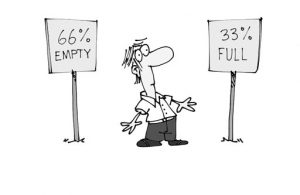A carbon tax proposal from the Climate Leadership council was created, and it was hailed as a proposal that would be widely accepted by the public no matter their political affiliation. It was a “tax-and-dividend” plan, where the “tax” was $40 on each ton of carbon and the “dividend” would be redistributed back to citizens via quarterly checks from the Social Security Administration. This bill would affect companies from the coal, oil, and natural gas sector and punish them into reducing carbon emissions. As a result, prices in households would rise as reflected in their heating, electricity, and gasoline bills.
This would lead to total revenues of 194 billion, and the redistributed back to citizens as dividends from the Social Security Administration via quarterly checks. To understand this issue, we need to focus on two primary outcomes to judge voter satisfaction, and a survey conducted by the Yale Program on Climate Change Communication did just that.
Survey question #1: “If a tax on fossil fuels (coal, oil, natural gas) to help reduce global warming was to cost your household $X each year how much would you pay?
The answer was an average of $177.
Survey question #2: What should the government spend the revenue on?
The disconnect between policy makers and citizens was that the answer was not to give the money back to the people. The highest preference, at 80% of respondents, was to spend the money to “Develop clean energy”. Only 50% of respondents wanted “Return $ to households”.
When looking at framing theory, consumers will select positive framing significantly more than negative framing, even when the results are the same. This appears to be a similar case. People do not see taxing bad things equally to spending money on better alternatives. They would rather spend money directly towards creating a better future rather than creating disincentives for current practices to create competition that leads to new alternatives.

When we considering our marketing initiatives, it is important to consider that it can be difficult to build strong public support around punishment, even if it may deemed the most rational thing to do. However, economics does not inspire people, but rather hope and optimism towards building a brighter future.
Another technique if we wanted to keep the same bill is to refocus communications to focus not on the taxes as a way to put money back in the public’s pocket, but the economic outcome to decrease product usage. This type of messaging is ineffective for brands that would be the energy sector, but would be seen positively if said by the government. It is far more authentic coming from the government versus a business where decreased usage is perceived to be incongruent with the bottom line and company goals.
These are both important lessons that remind us to find alignment between our goals and a broader truth if we want our marketing communications to resonate.
Source: Roberts, David. “Americans Are Willing to Pay $177 a Year to Avoid Climate Change.” Vox, Vox, 13 Oct. 2017, www.vox.com/energy-and-environment/2017/10/13/16468318/americans-willing-to-pay-climate-change.
Image: https://instinctink.files.wordpress.com/2016/02/sketch06.jpg?w=656
Thanks for this Robert,
A good example of how different groups all have rolls to play and how hard it is to get everyone to work together.
Keep thinking of ways to best use the blog medium – consider asking questions of your fellow students, keep adding links and use photos to break up the text and keep reader interest!
Tess